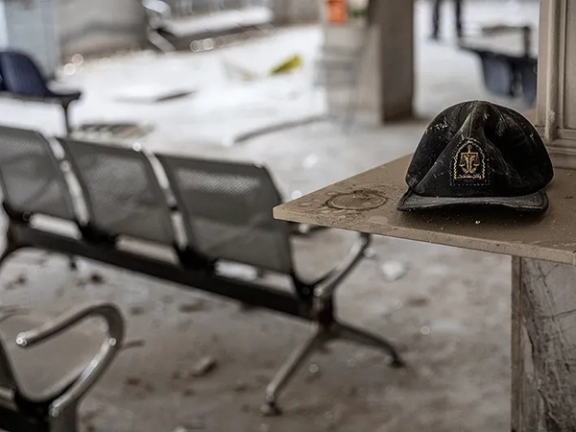Israeli strike on Evin prison was 'war crime,' Human Rights Watch says

Israel’s June airstrike on Tehran’s Evin prison showed no regard for distinguishing between military and civilian targets and is a war crime, Human Rights Watch said on Thursday.

Israel’s June airstrike on Tehran’s Evin prison showed no regard for distinguishing between military and civilian targets and is a war crime, Human Rights Watch said on Thursday.
“Israel’s strikes on Evin prison on June 23 killed and injured scores of civilians without any evident military target in violation of the laws of war and is an apparent war crime,” said Michael Page, the rights group's deputy Middle East director said.
“The Israeli attack placed at grave risk the already precarious lives of Evin’s prisoners, many of them wrongfully detained dissidents and activists.”
More than 1,500 people were believed to be held in Evin at the time, including political activists imprisoned in violation of their rights by the Iranian government, the group added.
The attack which took place during visiting hours caused extensive damage to the visitation hall, the central kitchen, the medical clinic, and sections where prisoners — including political detainees — were held.
Citing official Iranian figures, Human Rights Watch said at least 80 people were killed, including prisoners, their family members, and prison staff. Iran’s judiciary announced that at least 71 people were killed, also citing the victims to be a mix of prison personnel, prisoners, visiting relatives, and nearby civilians.
Former Iranian political prisoner and student activist Motahareh Gounei said in July that the government wanted the inmates, many of whom are political prisoners, "to be buried under the rubble of war” .
At the time of the attacks, the office of the Israeli defense minister, Israel Katz, released a statement announcing the strikes.
"The IDF is now attacking with unprecedented force regime targets and government repression bodies in the heart of Tehran, including the Basij headquarters, Evin prison for political prisoners and opponents of the regime, the 'Israel Destruction' clock in Palestine Square, the internal security headquarters of the Revolutionary Guards, the ideology headquarters, and other regime targets," the statement said on June 23.
Under international humanitarian law, prisons are considered civilian infrastructure.
Human Rights Watch said the laws of war prohibit “attacks that target civilians and civilian objects, that do not discriminate between civilians and combatants, or that are expected to cause harm to civilians or civilian objects disproportionate to any anticipated military advantage.”
On the day of the strike, amid massive criticism from rights groups, Israel's military spokesman Brig. Gen. Effie Defrin said the attack was carried out “in a pinpoint manner, to avoid harm to those uninvolved.”
Among the critics was Nobel Prize laureate Narges Mohammadi, a former inmate and dissident, who said at the time: "Attacking a prison when the inmates are standing behind closed doors and they are unable to do the slightest thing to save themselves, can never be a legitimate target.”
More than 600 political prisoners were transferred back to Tehran’s Evin Prison earlier in August with some political prisoners saying Iran used brute violence during the process.